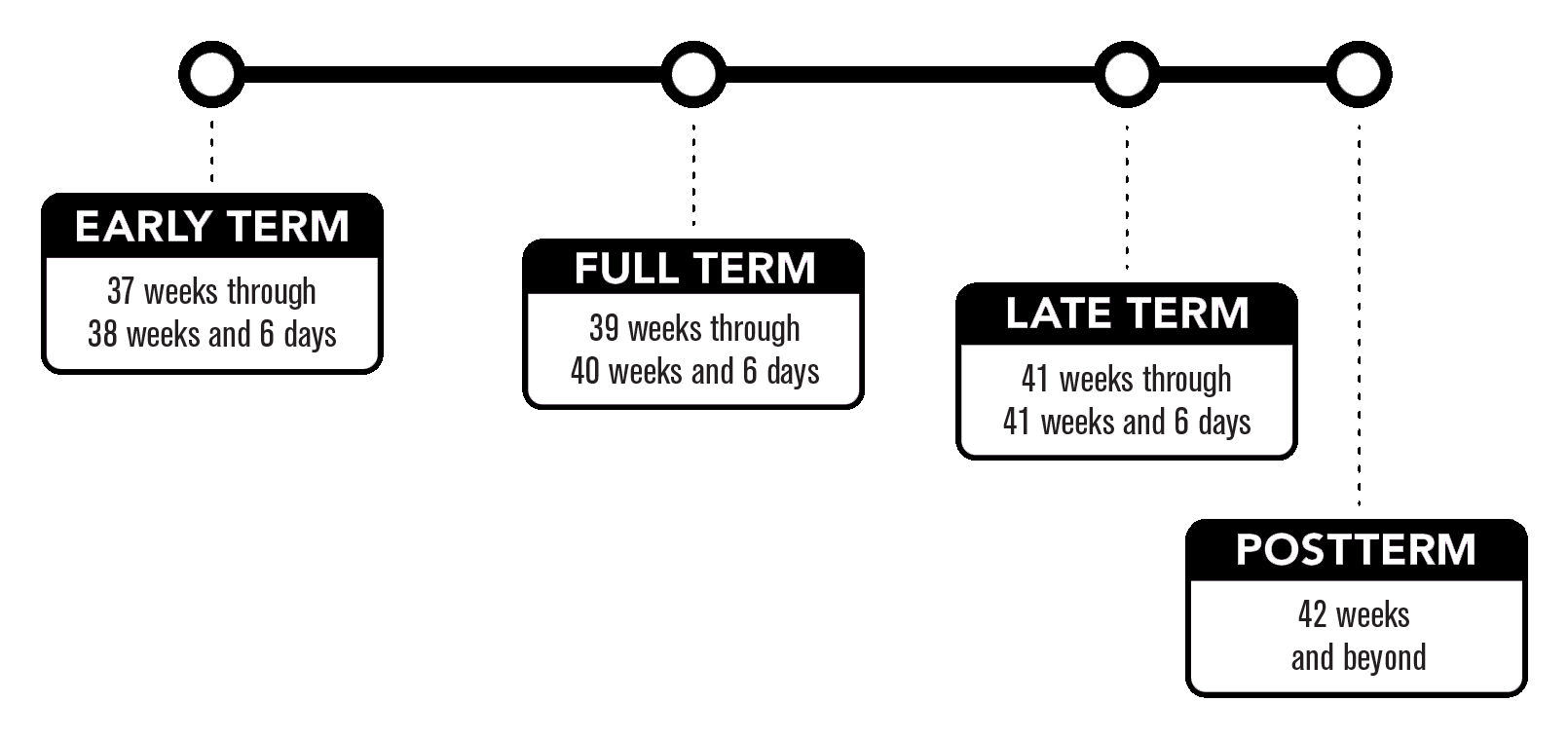"Full Term" Has a New Meaning
The meaning of "term" pregnancy has changed. "Term" has been replaced by more specific definitions that communicate the importance of the last few weeks of pregnancy for infant development. Learn why the term pregnancy definitions are important to promoting the best outcomes for mom and baby.
"Full Term" Starts at 39 Weeks
The American College of Obstetricians and Gynecologists and the Society for Maternal Fetal Medicine announced more specific definitions to describe babies born between 37 weeks and 42 weeks of pregnancy.
In the past, a baby born anytime between 37 weeks and 42 weeks was considered "term." A pregnancy is now considered "full term" at 39 weeks.

Why does this matter?
Research shows that babies do best when they are born during weeks 39 and 40.
Babies born before 39 weeks are at risk for problems with breathing, feeding, and controlling their temperature. They are also more likely to spend time in the neonatal intensive care unit, develop infections, and have a learning disability.
What does this mean for my pregnancy?
Waiting to deliver until at least 39 weeks, in a healthy pregnancy, gives your baby the time he or she needs to grow. Your baby's lungs, liver, and brain go through a crucial period of growth between 37 weeks and 39 weeks of pregnancy. Waiting until 39 weeks, now called "full term," gives your baby the best possible chance for a healthy start in life.
There may be a time, if there is a health risk to the mother or baby, when a planned delivery before 39 weeks is necessary. But in a healthy pregnancy, it's best to wait until at least 39 weeks.
It is important to know these terms so you and your health care provider can talk about what is best for the health of you and your baby.
Video: Term Talk
View on YouTube 




 BACK TO TOP
BACK TO TOP